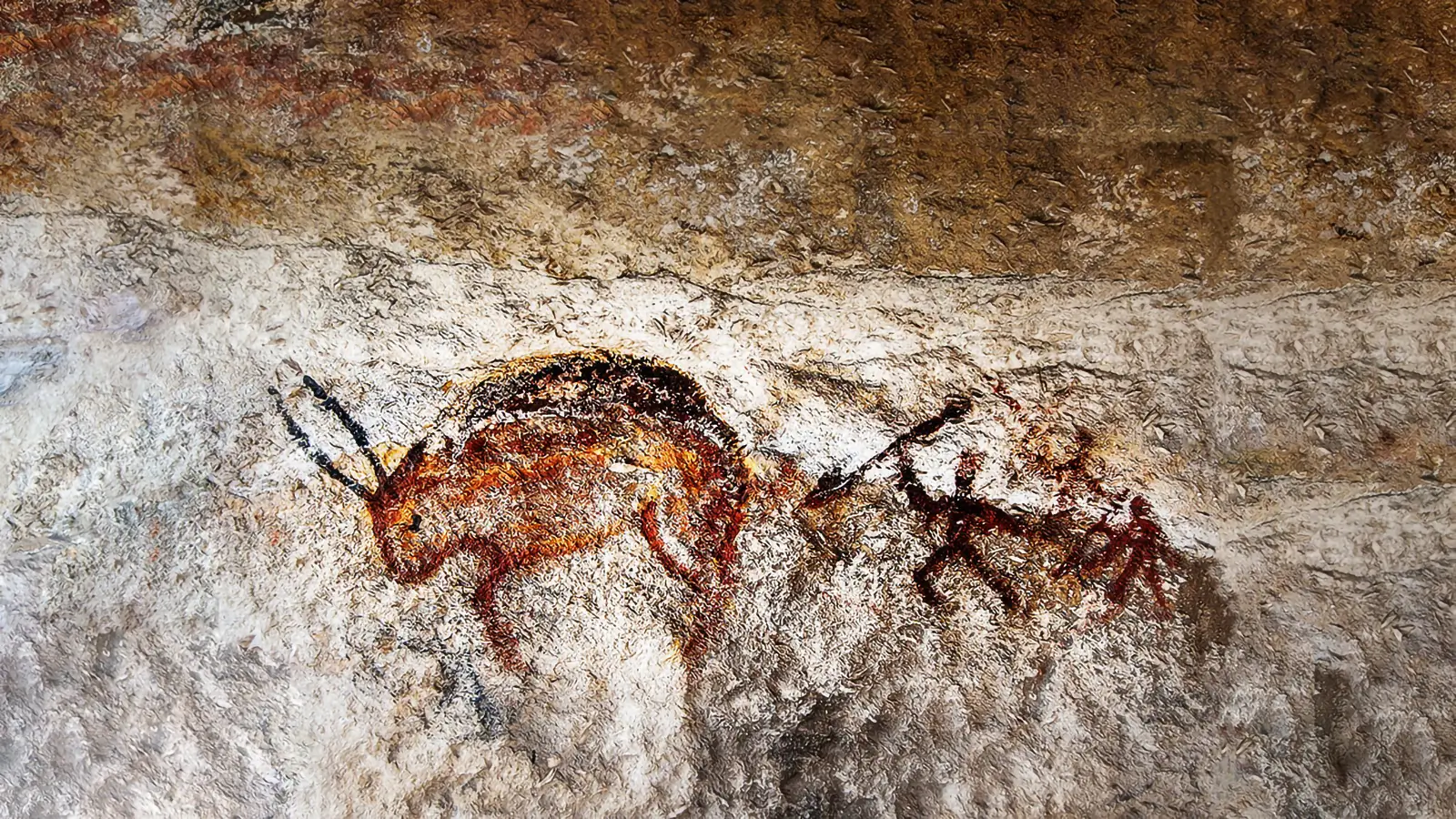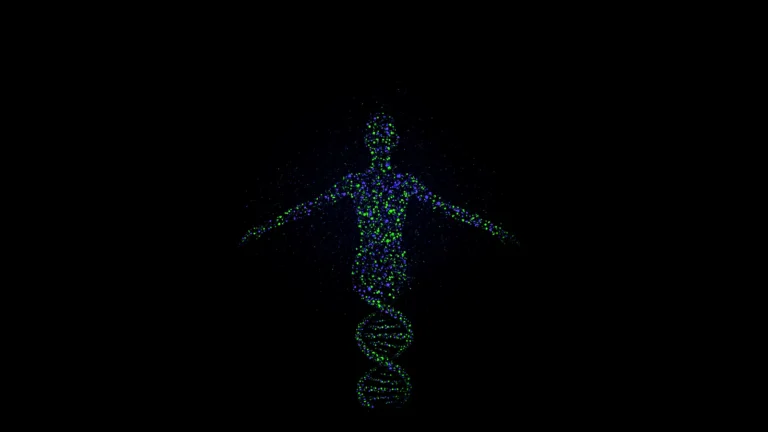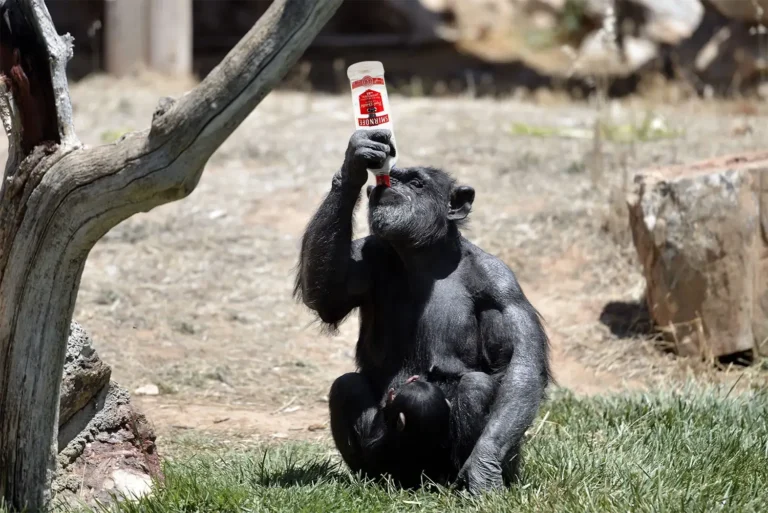Dieta mediterránea- "Maravilla" de aceite de oliva
Comercializada como una maravilla del aceite de oliva, la dieta mediterránea no tiene nada que ver con ningún tipo de aceite, salvo en la medida en que puede sustituir a la mantequilla y la manteca de cerdo.
Milos Pokimica
Escrito por: Milos Pokimica
Revisado Médicamente Por: Dr. Xiùying Wáng, M.D.
Actualizado el 9 de junio de 2023La vieja y saludable dieta mediterránea. Comercializado como una maravilla de aceite de oliva que no tenía nada que ver con el aceite de cualquier tipo en absoluto, excepto en la medida en que puede sustituir a opciones aún peores como una grasa saturada regular como la mantequilla y la manteca de cerdo. Así es precisamente como lo veía incluso el padre de la dieta mediterránea (Claves, 1987). Cuando se va a pubmed.gov y se busca dieta mediterránea, aparecen unos 5000 resultados. La dieta mediterránea son muchas dietas en muchos países diferentes. Puede ser Marruecos o Grecia o España o Italia o algún otro lugar.
Sin embargo, cuando hablamos de la dieta mediterránea lo que se da a entender es la dieta en la isla de Creta en la época posterior a la Segunda Guerra Mundial. Además, lo que viene a continuación es una gran pregunta: ¿Por qué las enfermedades del corazón eran raras en el Mediterráneo? Es decir, en la isla de Creta después de la Segunda Guerra Mundial.
En 1948, tras la guerra y el colapso socioeconómico, el gobierno de Grecia estaba preocupado por la malnutrición y el estado de salud de sus ciudadanos. Decidieron invitar a la Fundación Rockefeller con el objetivo de realizar un estudio epidemiológico en la isla de Creta. En 1952, impresionado por los bajos índices de enfermedades cardiacas, Ancel Keys, el mismo científico que estuvo a cargo del Experimento de Inanición de Minnesota, observó la conexión existente tras investigar los datos entre las grasas, y especialmente las grasas saturadas, y las enfermedades cardiacas. Aunque en aquel momento no veía el colesterol como el problema porque significaría que los productos animales son los culpables. La conexión entre la grasa de la dieta y las enfermedades cardiacas se observó incluso antes, en la década de 1930, y fue influyente en el trabajo de Keys, pero los datos de Creta le hicieron escribir un artículo sobre ello en 1953 y hacer discursos públicos. El famoso Estudio de los Siete Países comenzaría cinco años después, en 1958, para investigar las preocupaciones de Keys (www.sevencountriesstudy.com). En la década de 1960 ya era una creencia común que las grasas saturadas contribuían a las enfermedades cardiacas. La dieta de los habitantes de la isla de Creta fue un catalizador para esta investigación posterior. En 1970 se presentó por primera vez el Estudio de los Siete Países. Keys vivió hasta los 100 años y en aquella época no era tan radical como las confusiones sobre el colesterol quieren hacer creer. Recomendó comer menos grasa, es decir, grasa en la carne y grasa en general como huevos (o al menos yemas) y productos lácteos, y en lugar de comer más pescado y pollo. Consideraba que las frutas y verduras eran sólo alimentos complementarios, y tenía un colesterol de alrededor de 200. Esa cifra no es saludable ni mucho menos. Esa cifra no es saludable ni mucho menos, pero vivió hasta los 100 años. El problema era que era un médico del mismo sistema que cualquier otro médico. La arteriosclerosis no suele producirse a una edad como las confusiones sobre el colesterol nos quieren hacer creer debido a todo el flujo sanguíneo estresante.
La arteriosclerosis es una enfermedad, no el proceso de envejecimiento. Podemos ir y mirar las arterias y medir la presión arterial de la gente pobre en lugares como Creta. Keys no vio la verdad sobre lo que era la dieta real en Creta. Pensó que era sólo grasa y no vio el problema en la proteína animal. Animal correlación de proteínas se pasó por alto incluso en los gráficos. Enturbió las aguas señalando sólo la grasa.
Sin embargo, ni siquiera eso era suficiente. Incluso eso era exagerado. En 1966, George Campbell y Thomas L. Cleave publicaron "Diabetes, trombosis coronaria y enfermedad de la sacarina". Argumentaban que las enfermedades crónicas occidentales, como las cardiopatías, las úlceras pépticas, la diabetes y la obesidad, estaban producidas por una sola cosa: "La enfermedad de los carbohidratos refinados." Era una historia interminable. Nunca se detuvo hasta el día de hoy. Todo es una mentira que se enfrenta a la mentira contraria. Guerras de dietas y confusión creadas artificialmente. Fue una buena estrategia de diseño que no cambió nada en 70 años, excepto para meter a la gente normal en el dinero que causa enfermedades haciendo un malvado bucle de miseria. Incluso en los tiempos actuales, es la misma vieja historia de manipulación. En 2001, por ejemplo, en el artículo de la revista Science titulado "Nutrition: The Soft Science of Dietary Fat", Gary Taubes escribió:
“Sigue siendo una propuesta discutible si el consumo de grasas saturadas por encima de los niveles recomendados por cualquier persona que no esté ya en alto riesgo de enfermedad cardiaca aumentará la probabilidad de una muerte prematura... o si cientos de millones de dólares en ensayos han conseguido generar pruebas convincentes de que los individuos sanos pueden alargar su vida más de unas pocas semanas, si eso, comiendo menos grasas.”
70 años después, la gente piensa que la dieta mediterránea es saludable gracias al aceite de oliva. Esta es una excelente ilustración de una verdad a medias. Los restaurantes italianos se promocionan a sí mismos como cocina saludable de dieta mediterránea con espaguetis carbonara y alcohol. La tasa de mortalidad por enfermedades cardíacas en Creta en aquella época era más de 20 veces, no el 20 por ciento, 20 veces menos que en Estados Unidos. Estadísticamente vemos estos datos de lugares como la China rural y Creta y Okinawa y así sucesivamente y vemos que la dieta de estas personas es simple y similar entre sí. ¿Cuánta estupidez tenemos que tener para no ver la verdadera historia de lo que está pasando? Los científicos con un nivel de educación considerable no son los estúpidos. Tienen ingresos anuales de seis cifras más primas. Ellos son los inteligentes. Nosotros no lo somos. La ciencia de la nutrición no es una investigación secreta de laboratorio sobre sistemas de propulsión militar. No hay verdaderos debates en el campo de la nutrición, sólo se crea confusión a propósito.
¿Qué comían en la isla de Creta tras la Segunda Guerra Mundial? La respuesta es la misma. Ni carne, ni huevos, ni lácteos. Sólo comida de pobres como frutas y verduras, cereales, frutos secos y legumbres. Cosas que crecen localmente. En cifras, comían más de 90% a base de plantas, y la carne, el pescado, los productos lácteos y los huevos combinados son unos 7%. Comían algo de aceite de oliva porque las aceitunas crecen en Creta, pero eso no es la dieta del aceite de oliva. O la dieta del vino. No hay nada saludable en el vino excepto las uvas. Estariamos mejor bebiendo zumo de uva crudo. Si miramos a Grecia hoy, ¿qué es lo que pensamos que encontraríamos? Tienen el número 1 de Europa en obesidad infantil. La isla de Creta incluida. En cuanto la economía mejora la carne, el queso, el azúcar y el alcohol vienen de paquete. Y el tabaco también. Grecia tiene una tasa de consumo de tabaco superior a 40%. La dieta mediterránea no era una dieta mediterránea específica local como la cocina italiana o la cocina griega o cosas así. Era una dieta de pobreza sin carne ni huevos ni lácteos, similar a las dietas de todos los lugares pobres o asolados por la guerra, y a la industria no le gusta mencionarlo. Las enfermedades del corazón eran una rareza en Grecia. Lo era. Ya no. E incluso en Creta, en tiempos de guerra, algunos ricos comían “normalmente”, es decir, comían carne todos los días en lugar de una vez cada dos semanas. Los infartos también eran normales para ellos, a diferencia del resto del pueblo llano, golpeado por la pobreza. Hoy en día ya nadie come la verdadera dieta mediterránea. La dieta mediterránea pura de hoy en día, basada predominantemente en plantas, no es una verdadera dieta integral. Está dominada por la harina blanca, el consumo de aceite y sal, y el alcohol. En Creta no comían pasta blanca refinada de fábrica con una salsa llena de aceite extraído y botellas de vino. El alcohol es un conocido factor de riesgo de cáncer de mama, incluso si no tenemos en cuenta la inflamación y la toxicidad. Esa no es una comida que promueva la salud. Bueno, no es una comida que promueva la salud si no la comparamos con la aún peor comida estándar americana de hoy en día. Así que sí, la dieta mediterránea es más saludable que la dieta normal, pero no tan saludable como una verdadera dieta humana natural. Dieta integral a base de plantas.
El problema es que la comida normal no es tan sabrosa como la refinada llena de sal y aceite y azúcar por lo que casi nadie se atiene a ella. Desde pequeños, los niños reciben todos estos productos químicos que consideramos alimentos, por lo que somos adictos a ellos en la infancia y ya no tenemos una base real de comparación con lo que es la verdadera comida humana. Por eso la dieta de los pobres funciona. Si no tenemos en cuenta el colesterol, las toxinas y las grasas saturadas que provienen de los productos animales y si analizamos los componentes individuales de la dieta en Creta, vemos que en realidad no eran los cereales los que protegían contra el ataque al corazón. Los cereales eran más neutros y, al ser alimentos integrales con fibra, no tenían ningún efecto sobre la obesidad o la diabetes. Entre los componentes individuales de la dieta mediterránea, el consumo de verduras y frutos secos tuvo la mayor parte de los efectos en la reducción del riesgo de enfermedades cardiovasculares. Los vegetarianos que comen frutos secos tienen un menor riesgo de enfermedad cardiovascular en lugar de los que no lo hacen, y ahora hay una serie de estudios sobre este tema también. He aquí uno (Guasch-Ferré et al., 2013) con la conclusión: "El aumento de la frecuencia de consumo de frutos secos se asoció con una reducción significativa del riesgo de mortalidad en una población mediterránea con alto riesgo cardiovascular".
Los frutos secos tienen un alto contenido en aceite pero también en fibra, por lo que el aceite no se absorbe inmediatamente como la grasa de la carne o el aceite refinado y, a diferencia de la carne o el aceite, los frutos secos son ricos en antioxidantes y otras sustancias fitoquímicas. Otra ventaja de los frutos secos es que, al combinarlos con verduras, el aceite aumenta la absorción fitoquímica de las sustancias químicas liposolubles que contienen las verduras, ya de por sí saludables. No tenemos por qué ser bajos en grasas y evitar el consumo de frutos secos y semillas y comer predominantemente almidón. Deberíamos comer almidón y frutos secos y todos los demás alimentos en la mayor variedad posible. Hasta ahora la ciencia no ha correlacionado el alto consumo de semillas y frutos secos con ninguna enfermedad, incluida la obesidad, excepto en personas alérgicas. Todo lo contrario. Son beneficiosos en casi cualquier enfermedad. Las nueces de Brasil están llenas de selenio, y las nueces son protectoras contra el cáncer, los lignanos de la linaza son una de las sustancias químicas más protectoras contra el cáncer de mama y también están llenas de aceites omega-tres para la función cerebral. Nuestros antepasados llevaban mucho tiempo comiendo frutos secos crudos y semillas. Son nuestro alimento natural tanto como las frutas o los cereales o las hojas jóvenes u otras verduras de hoja verde.
La dieta sana es la que hemos evolucionado y a la que nos hemos adaptado. Eso es todo.
Referencias:
- Keys A. (1987). Aceite de oliva y cardiopatía coronaria. Lancet (Londres, Inglaterra), 1(8539), 983-984. https://doi.org/10.1016/s0140-6736(87)90337-0
- Guasch-Ferré, M., Bulló, M., Martínez-González, M. Á., Ros, E., Corella, D., Estruch, R., Fitó, M., Arós, F., Wärnberg, J., Fiol, M., Lapetra, J., Vinyoles, E., Lamuela-Raventós, R. M., Serra-Majem, L., Pintó, X., Ruiz-Gutiérrez, V., Basora, J., Salas-Salvadó, J., & PREDIMED study group (2013). Frecuencia de consumo de frutos secos y riesgo de mortalidad en el ensayo de intervención nutricional PREDIMED. BMC medicina, 11, 164. https://doi.org/10.1186/1741-7015-11-164
Contenidos Relacionados
¿Tienes alguna duda acerca de la nutrición y la salud?
Me encantaría saber de usted y responderlas en mi próxima publicación. Agradezco sus aportes y opiniones y espero tener noticias suyas pronto. También te invito a síguenos en Facebook, Instagram y Pinterest para más contenidos sobre dieta, nutrición y salud. Puedes dejar un comentario allí y conectar con otros entusiastas de la salud, compartir tus consejos y experiencias, y recibir apoyo y ánimo de nuestro equipo y nuestra comunidad.
Espero que este post le haya resultado informativo y ameno y que esté preparado para aplicar los conocimientos adquiridos. Si le ha resultado útil, por favor compártelo con tus amigos y familiares que también podrían beneficiarse de ella. Nunca se sabe quién puede necesitar orientación y apoyo en su camino hacia la salud.
– También Te Puede Interesar –

Aprenda Sobre Nutricion
Milos Pokimica es doctor en medicina natural, nutricionista clínico, escritor sobre salud médica y nutrición y asesor en ciencias de la nutrición. Autor de la serie de libros Go Vegan? Revisión de la Ciencia, también dirige el sitio web sobre salud natural GoVeganWay.com.
Descargo De Responsabilidad Médica
GoVeganWay.com le ofrece reseñas de las últimas investigaciones relacionadas con la nutrición y la salud. La información proporcionada representa la opinión personal del autor y no pretende ni implica sustituir el asesoramiento, diagnóstico o tratamiento médico profesional. La información proporcionada tiene fines informativos únicamente y no pretende sustituir la consulta, el diagnóstico y/o el tratamiento médico de un médico o proveedor de atención médica calificado.NUNCA ignore el CONSEJO MÉDICO PROFESIONAL O RETRASAR la BÚSQUEDA de TRATAMIENTO MÉDICO a CAUSA DE ALGO QUE HAYA LEÍDO EN O accesibles a TRAVÉS de GoVeganWay.com
NUNCA APLICAR CUALQUIER cambio de ESTILO de vida O CAMBIOS EN su totalidad COMO UNA CONSECUENCIA DE ALGO QUE HA LEÍDO EN GoVeganWay.com ANTES de CONSULTAR con LICENCIA PROFESIONAL MÉDICO.
En el caso de una emergencia médica, llame a un médico o al 911 inmediatamente. GoVeganWay.com no se recomienda ni aprueba ninguna de los grupos, las organizaciones, las pruebas, los médicos, productos, procedimientos, opiniones u otra información que pueda ser mencionado en el interior.
Selecciones del editor –
Milos Pokimica es escritor especializado en salud y nutrición y asesor en ciencias nutricionales. Autor de la serie de libros Go Vegan? Revisión de la Ciencia, también dirige el sitio web sobre salud natural GoVeganWay.com.
Últimos artículos -
Top Noticias De Salud — ScienceDaily
- Alzheimer’s may begin with a silent drop in brain blood flowen febrero 24, 2026
Subtle changes in brain blood flow and oxygen use are closely linked to hallmark signs of Alzheimer’s, including amyloid plaques and memory-related brain shrinkage. Simple, noninvasive scans may one day help spot risk earlier—by looking at the brain’s vascular health, not just its plaques.
- Scientists engineer bacteria to eat cancer tumors from the inside outen febrero 24, 2026
Researchers are engineering bacteria to invade tumors and consume them from the inside. Because tumor cores lack oxygen, they’re the perfect breeding ground for these microbes. The team added a genetic tweak that helps the bacteria survive longer near oxygen-exposed edges — but only once enough of them are present to trigger the change. It’s a carefully programmed biological attack that could one day offer a new way to destroy cancer.
- Massive US study finds higher cancer death rates near nuclear power plantsen febrero 24, 2026
A sweeping nationwide study has found that U.S. counties located closer to operating nuclear power plants have higher cancer death rates than those farther away. Researchers analyzed data from every nuclear facility and all U.S. counties between 2000 and 2018, adjusting for income, education, smoking, obesity, environmental conditions, and access to health care. Even after accounting for those factors, cancer mortality was higher in communities nearer to nuclear plants, particularly among older […]
- Training harder could be rewiring your gut bacteriaen febrero 24, 2026
Training harder may do more than build muscle—it could transform your gut. Researchers found that intense workouts change the balance of bacteria and important compounds in athletes’ digestive systems. When training loads dropped, diet quality slipped and digestion slowed, triggering different microbial shifts. These hidden changes might influence performance in ways scientists are only beginning to understand.
- Scientists reverse muscle aging in mice and discover a surprising catchen febrero 24, 2026
A UCLA study in mice reveals that aging muscle stem cells accumulate a protein that slows repair but boosts survival. This protein, NDRG1, acts like a brake, preventing cells from activating quickly after injury. When researchers blocked it in older mice, muscle healing sped up dramatically — but stem cells became less resilient over time. The work suggests aging may reflect a survival trade-off rather than straightforward decline.
- Less sugar as a baby, fewer heart attacks as an adulten febrero 23, 2026
People whose sugar intake was restricted before birth and in early childhood had markedly lower rates of heart disease later in life. Compared to those never exposed to rationing, their risks of heart attack, stroke, heart failure, and cardiovascular death were cut by roughly 20–30%.
- Scientists create universal nasal spray vaccine that protects against COVID, flu, and pneumoniaen febrero 23, 2026
Scientists at Stanford Medicine have unveiled a bold new kind of “universal” vaccine that could one day protect against everything from COVID-19 and the flu to bacterial pneumonia and even common allergens. Instead of targeting a specific virus or bacterium, the nasal spray vaccine supercharges the lungs’ own immune defenses, keeping them on high alert for months. In mice, it slashed viral levels, prevented severe illness, and even blocked allergic reactions.
PubMed, #Dieta vegana –
- Veganism: an extended theory of planned behavior framework incorporating ethical, environmental, and sociodemographic determinantsen febrero 20, 2026
CONCLUSION: This study broadens the TPB by integrating ethical, normative, and psychosocial dimensions that explain vegan intentions beyond traditional predictors. Findings underscore the importance of moral identity, perceived social expectations, and contextual factors in shaping sustainable dietary behaviors.
- Association Between Diet and Metabolome in Childhood and Adolescence: A Systematic Reviewen febrero 11, 2026
CONCLUSION: This review identifies several metabolites consistently associated with specific dietary components across different studies in children and adolescents. These findings support the potential of metabolomics for validating dietary biomarkers and improving the accuracy of dietary assessment in pediatric populations. Although metabolomic markers reflect actual dietary intake, their implications for health outcomes remain to be explored.
- Growth Trajectories in Infants From Families With Plant-Based or Omnivorous Dietary Patternsen febrero 5, 2026
CONCLUSIONS AND RELEVANCE: In this cohort study, infants from vegan households had growth patterns similar to those from omnivorous households, with a higher odds of early underweight that decreased by age 24 months. In the context of developed countries, these findings seem reassuring. Further research should examine vegan diet quality and the impact of nutritional counseling during pregnancy and infancy in supporting optimal infant development.
- Influences of vegan status on protein intake, lean body mass, and strength in lightly active, young women: A cross-sectional studyen febrero 5, 2026
CONCLUSION: These data suggest that functional indicators of body protein status may be adversely impacted by long-term adherence to vegan diets in young adult women.
- Iodineen enero 1, 2006
Iodine is an essential trace nutrient for all infants that is a normal component of breastmilk. Infant requirements are estimated to be 15 mcg/kg daily in full-term infants and 30 mcg/kg daily in preterm infants.[1] Breastmilk iodine concentration correlates well with maternal urinary iodine concentration and may be a useful index of iodine sufficiency in infants under 2 years of age, but there is no clear agreement on a value that indicates iodine sufficiency, and may not correlate with […]
Publicaciones aleatorias –
Publicaciones destacadas -
La última versión desde PubMed, #Dieta basada en plantas –
- Differences in Protein Quantity and Quality Across a Spectrum of Plant-Based Meals: Analysis of a Large National Dietary Surveypor Sophie L van Oppenraaij en febrero 24, 2026
CONCLUSIONS: This study shows that only a small proportion of Dutch adults met both protein-related recommendations and sustainability goals, due to lower protein quantity and quality in more plant-based diets. This study emphasizes the need for professional guidance, especially in individuals with higher protein requirements, to facilitate a successful transition to a more plant-based diet.
- Dietary animal fat disrupts gut microbiota and aggravates Scl-cGVHD after allogeneic hematopoietic stem cell transferpor Danielle D Millick en febrero 24, 2026
Allogeneic hematopoietic stem cell transplant (allo-HSCT) is an effective treatment for high-risk or relapsed acute leukemia. However, the frequent occurrence of graft-versus-host disease (GVHD) poses significant complications. Modifiable factors such as the gut microbiome and dietary regimen have the potential to influence the frequency and severity of GVHD. Previous studies in mouse models have shown a direct link between obesity and increased severity of GVHD; however, analysis of human […]
- Association between the adherence to different dietary patterns and sperm chromatin integrity in healthy menpor Marc Llavanera en febrero 24, 2026
CONCLUSION: To the best of our knowledge, this study is the first to epidemiologically investigate the relationship between dietary patterns and sperm chromatin integrity, highlighting that adherence to unhealthy plant-based diets may lead to sperm chromatin abnormalities. These findings underscore the potential effect of specific dietary patterns on molecular sperm quality parameters and support further research into dietary strategies for optimizing sperm integrity and improving male…
- Evaluation of biochemical, histopathological, hematological, and genotoxic effects of some indigenous weed plant extracts in albino rats toward a natural and safe alternative to synthetic insecticidespor Muhammad Asif Zahoor en febrero 23, 2026
CONCLUSION: These findings suggest that these weed plants have the potential to be used as biopesticides for future integrated pest management (IPM) programs.
- Comparative life cycle assessment of conventional dairy products and plant-based analog and hybrid alternatives: current status and future perspectivespor Muhammed Fidan en febrero 23, 2026
Conventional dairy products are associated with relatively high environmental burdens, largely driven by farm-level processes such as enteric methane emissions, feed production, and land use. These concerns have intensified interest in plant-based analog and hybrid dairy products as potential alternatives. However, environmental comparisons among these product categories remain inconsistent due to differences in functional units, methodological choices, and nutritional characteristics. This…
- Dietary Patterns and Indicators of Cognitive Functionpor Hui Chen en febrero 23, 2026
CONCLUSIONS AND RELEVANCE: Results reveal that healthy diets, exemplified by the DASH diet for blood pressure control and diets with lower hyperinsulinemia and inflammation potentials, were associated with a lower SCD risk and better cognitive function. These findings underscore the importance of a healthy diet for maintaining long-term cognitive health.

















